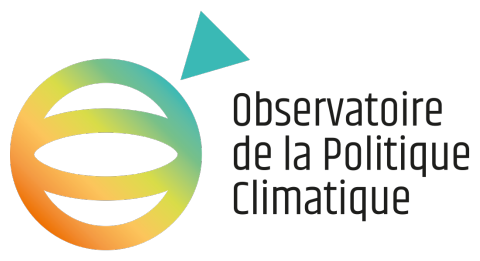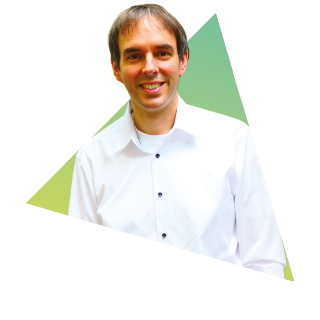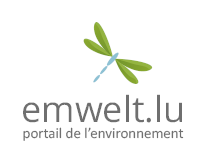The Heat is On!
The cumulative scientific evidence is unequivocal: Climate change is a threat to human well-being and planetary health. Any further delay in concerted anticipatory global action on adaptation and mitigation will miss a brief and rapidly closing window of opportunity to secure a liveable and sustainable future for all. (very high confidence)

With the accumulation of extreme events in recent years, the scale and interconnectedness of impacts of climate change on individuals, organisations, and nations, can no longer be ignored, not even in Luxembourg, which usually finds itself sheltered from the storm.
The Government of the Grand Duchy of Luxembourg – more precisely the Government in Council – thus nominated the members of the ‘Climate Policy Observatory’ (OPC; Observatoire de la politique climatique) in October 2021, which was set up in the framework of Luxembourgish climate law to address challenges caused by climate change. The OPC is a scientific council currently composed of seven members with expertise in various fields of climate-related sciences. Its mission encompasses advising on projects, actions or measures that may have an impact on climate policy, scientifically evaluating the measures carried out or envisaged in the field of climate policy and analysing their effectiveness, as well as proposing new measures. Its tasks also include writing an annual report for the Government on the implementation of the climate policy, and proposing research and studies in all fields related to the climate.
This document presents a summary of the first annual report of the OPC setting the scene by providing background information, establishing the OPC’s main principles and providing a first (cross-) sectoral assessment of Luxembourgish climate policies. The Luxembourgish climate law sets clear targets of reducing greenhouse gas emissions by 55% by 2030 (compared to levels of 2005), and to become climate neutral (net zero emissions) by 2050 at the latest. One of the executive regulations of the law specifies how the emissions targets shall be distributed by sector until 2030. The measures to reach these targets for each sector are laid out in the first integrated National Energy and Climate Plan (Plan national intégré en matière d’énergie et de climat, PNEC). The OPC’s report and recommendations will be valuable input for the creation of the update of the PNEC.
Members of the OPC
Andrew Ferrone
President

The solution to global climate change has to be addressed as a global effort, however in practice every single action counts. These need to include incremental efforts, based on fossil-free technologies, as well as behavioural changes. At the same time, further fundamental societal changes and lifestyles changes must occur in order to achieve a full decarbonisation of society, in conjunction with all of the Sustainable Development Goals.
Andrew Ferrone is a physical climate scientist by trade and works mainly at the climate science policy interface. He is currently the Head of the meteorological service at the Administration of Technical Agricultural Services (ASTA) in Luxembourg. He is also the Permanent Representative to the World Meteorological Organization (WMO), the head of the Luxembourgish delegation to the Intergovernmental on Climate change (IPCC) and coordinates the team of negotiators for the European Union on Science issues under the United Nations Convention on Climate Change (UNFCCC). Andrew completed his PhD at the Université catholique de Louvain, on the topic of aviation and climate change in Europe: from regional climate modelling to policy-options.
Mirjam Kosch
Vice-President

In 2050, I will be 65 years old and looking forward to my retirement. In the same year, at the latest, we must achieve net zero greenhouse gas emissions in order to limit global warming. It is my professional goal to be able to say at my retirement: The world has managed to stop global warming - and I have contributed to it!
Mirjam Kosch is an enthusiastic environmental scientist and completed her doctorate in economics at ETH Zurich on climate policy in the electricity sector. As part of her doctoral thesis, she empirically analysed the impact of renewable energy subsidies and carbon pricing. Currently, she is working at the Potsdam-Institute for Climate Impact Research on the impact of fuel and carbon prices on electricity prices as well as on the expansion of the European emissions trading system and its interplay with different policy instruments. As a modern climate economist, she is convinced that carbon pricing should be a central instrument of climate policies but needs to be complemented by a broad policy mix.
Ever since my Bachelor studies I have been fascinated by the science-policy interface. Only when both sides actively engage in the dialogue between scientists and policy makers, can we really make a difference. Small countries where people know each other, like Luxembourg or my native country Switzerland, can lead the way as pioneers in this field. I am thus very happy to be part of the OPC and hope to make a contribution to mutual understanding between the two worlds.
Enrico Benetto

In joining the OPC, I am motivated to share my experience in quantitative assessment of the environmental impacts generated by human activities and technologies, to contribute to the evaluation of climate policies and the definition of improvement recommendations. In particular I intend to focus on the quantitative assessment of the positive and negative effects of carbon emissions, of policies on socio-technical systems, on industry and vice versa, so to consider the causal relationships between policy actions and expected benefits in relation to climate targets in the analysis. Considering the possible side-effects of climate policies, e.g., on environmental impact categories other than climate change (e.g., biodiversity) as well as on social aspects is also very central in my contribution to the OPC.
My core research interest is in developing science-based methods and indicators to orient sustainable decarbonisation pathways towards climate targets. I am leveraging 25 years of leadership experience in RDI institutions in the field of environmental life cycle sustainability and risk assessment of products, technologies and policies and broad range of experiences in providing assistance with decision-making for industry and public policy. On the academic side, I have contributed to the scientific literature, co-authoring 120+ peer reviewed scientific papers, 150+ scientific conference proceedings, 18 chapters in volumes with ISBN and editing one open access book which has been accessed 1M+ times. On the impact side, I have contributed in generating and disseminating new knowledge in 30+ European research projects and 25+ collaborative research partnerships with SMEs, policy makers and large industries. I am keen to broadly contribute to enhance the consideration of sustainability in society. I have developed research and strategic partnerships with national Ministries and international institutions (e.g. World Alliance for Efficient Solutions of Bertrand Piccard). Further, I served as advisor for the TEG on Sustainable Finance of the EU Commission. I am currently serving as advisor in different Boards (e.g. Spuerkees, Greenworlder, IRT M2P).
Sabine Dörry

Climate change is affecting and will continue to affect living conditions in Luxembourg. My motivation and ambition for the OPC is to provide information on the complexities, especially in relation to climate and sustainable finance, and make scientific knowledge accessible. By actively addressing the roots and causes of climate change, I also see many opportunities for Luxembourg’s sustainable future, its society, its environment, and its economy.
Sabine Dörry is an economic and financial geographer. She is a senior researcher working at the Luxembourg Institute of Socio-Economic Research (LISER) and a founding and board member of the FINGEO Network, the Global Network on Financial Geography. Building on previous research positions at and academic visits to the universities of Frankfurt am Main, Oxford, Amsterdam, and Singapore, her current work focuses on the financial industry, and its organisation in and influence on leading financial centres. Sabine is interested in developing alternative ways to analyse the global financial system. This includes how shifts towards ‘sustainable’ finance and increasing technologisation affect financial activities, (redesigning) financial institutions, and (rebuilding) regional economies.
Claire Dupont

Responding effectively and fairly to climate change is a daunting task: Nothing less than the transformation of our underlying societal, cultural, and technological systems along with fair individual efforts will do. Everyone has a role to play.
Claire Dupont is political scientist, whose research focuses on EU and international climate and energy politics, policy, and governance. She currently works as associate professor of European and international governance at Ghent University, Belgium. She also serves as the Vice-Chair of the Scientific Committee of the European Environment Agency. Originally from Ireland, Claire moved to Brussels, Belgium, in 2008, to pursue her PhD at the Vrije Universiteit Brussels, in which she assessed the integration of EU climate and energy policy frameworks.
Clearly, our knowledge systems also need to change to contribute to the necessary transformation, including by becoming more engaged and embedded in policy and societal processes. I am honoured to have the opportunity to play a role in these efforts through the work of the OPC.
Ariane König

Let’s work for healthy ecosystems, social systems, and lifestyles!
Ariane König is a Research Scientist at the University of Luxembourg, where she and her team are engaged in research projects to facilitate and learn from social processes with experts and stakeholders to address complex sustainability challenges. The research focus is on food and water and land-use systems as well as the tight interplay between the two. We seek to understand how developments and transformations within the spheres of society, technology, ecology, and the personal sphere are interdependent, and which might be prominent leverage points for deliberate transformations for a more sustainable society. König also built and coordinates an innovative study programme in ‘Sustainability and Social Innovation’ that is open to students and professionals. In addition to be a member of the Observatoire, König is also a member of the European Statistical Advisory Committee and has completed two terms as a member of the national Conseil Supérieur pour un Développement Durable.
König obtained her Bachelor and Ph.D. at the University of Cambridge, Emmanuel College, and first worked on risk regulation for a leading multinational life science corporation. Thereafter she joined the universities of Harvard and Oxford, where she conducted research and taught post-graduate and executive training courses on governance of new technologies and risk, with a focus on sustainable agricultural food production. She has also worked as an independent scientific consultant for the OECD, the European Commission, and EU research consortia. She has over 50 publications, her most recent book ‘Sustainability Science: Key Issues’ was published by Routledge in 2018.
Sustainability requires transforming how we think of and relate to ourselves, other people, and the environment we live and work in. That’s not easy given our social system and infrastructures produce patterns of thought and behaviour that are hard to escape. The courses, study programme, and research projects I have built since 2010 serve to equip agents of change, such that we can better recognise leverage points for local and systemic change and evaluate and learn from these changes in a networked manner. This can involve citizen science, scenario work and other means. With my research team, and personally, I work to improve how we engage with and regenerate healthy water, soil, and biodiversity, in Luxembourg and beyond. In my organic garden I am proud to host countless lizards, diverse mice, a slowworm, and a rare smooth snake, who seem to seem to enjoy the many insects and packaging- and logistics-free vegetables and fruit there as much as my family and I do.
Jean-Pascal van Ypersele

I turned 65 years old in 2022, and I want to pass on what I have learned throughout my career as a climate scientist, without embellishing reality or making it sound all doom and gloom. In the institutions and groups where I have the chance to be active, including the OPC, I will continue to advocate for respect for the environment and all forms of life, human rights, equality of women and men, truth, justice, science, listening, empathy, diversity, and inclusiveness.
I would like to put my energy and time at the service of having the IPCC's conclusions seriously taken into account by political decision-makers, economic actors, the education sector, and citizens. In doing so, I wish to remind people that there are many solutions to the various challenges facing humanity, and to support young people who want to build a better world.
Jean-Pascal van Ypersele is full professor of climatology and sustainable development sciences at UCLouvain (Université catholique de Louvain, Belgium) and member of the Académie royale de Belgique. A physicist and climate modeller who worked at NCAR (National Center for Atmospheric Research, USA), he has jointly published many papers with natural and social scientists on climate change and sustainable development at global and regional scales, and this for forty years. He has been extensively involved in the IPCC since 1995 and was IPCC Vice-Chair from 2008 to 2015. He co-authored the first quadrennial UN Global Sustainable Development Report (2019) and was a member of the EU Mission Board on Adaptation to Climate Change, including Societal Transformation (2019-2021). He has participated in most UN conferences on climate issues since 1979, including almost all COPs. He regularly briefs Heads of States and Governments and is occasionally consulted by Greta Thunberg.

